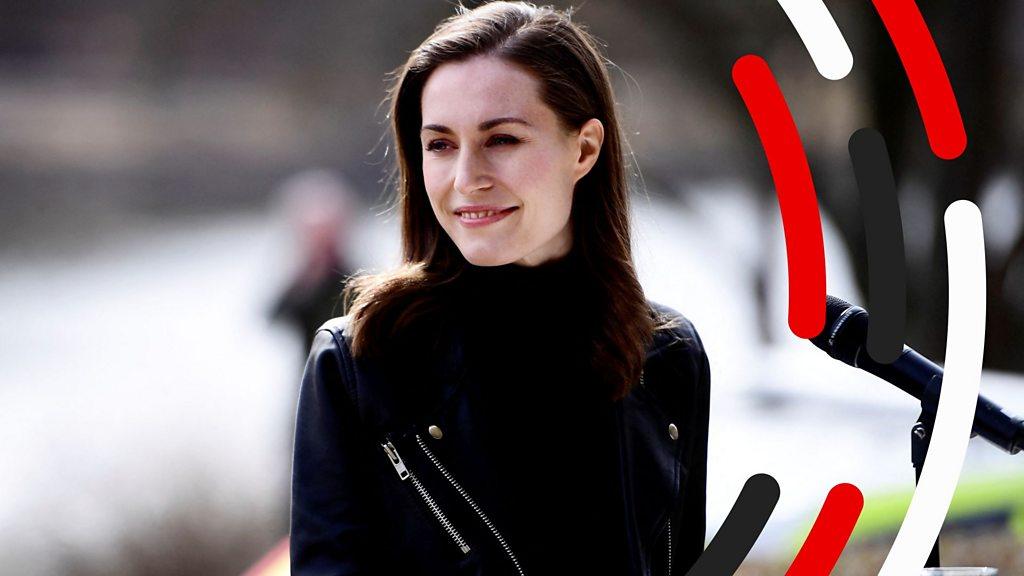Ukraine round-up: Russia cuts gas and fears conflict may spread
- Published
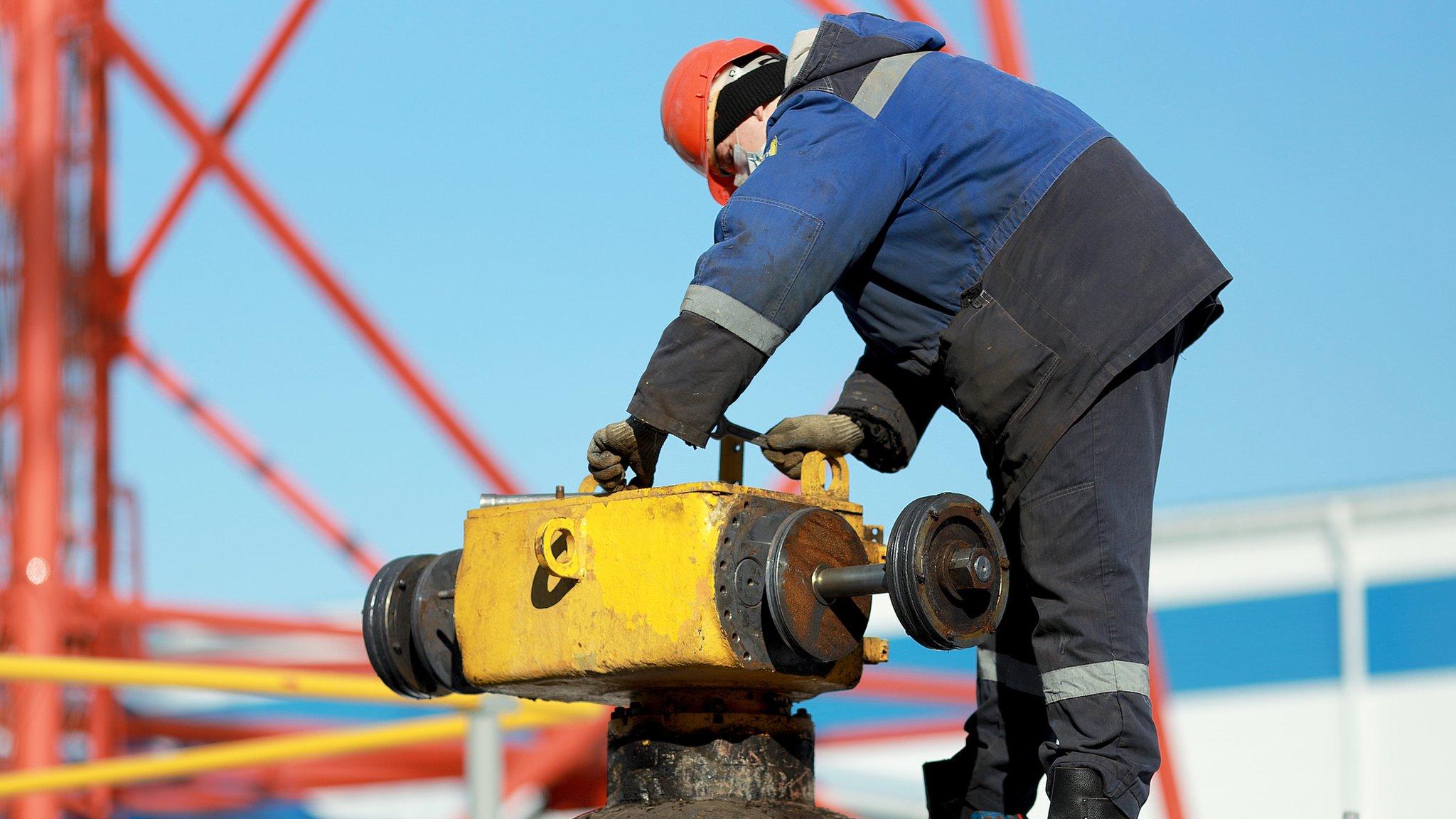
The White House has accused Russia of "almost weaponising" its energy supplies to Europe by cutting off Poland and Bulgaria from gas supplies.
Cutting supplies to the two European Union countries - ostensibly because of their refusal to pay in roubles as recently demanded by energy giant Gazprom - came as a surprise to many who thought President Vladimir Putin needed the income to finance his way in Ukraine.
The condemnation was swift.
Political leaders in Warsaw and Sofia decried the Russian "blackmail".
European Commission President Ursula von der Leyen said the move demonstrated that Russia was "unreliable" as an energy partner.

Can Europe wean itself off Russian oil and gas?
It's a question that has been asked again and again since the start of the war on 24 February.
Europe depends on Russia for more than a third of its gas needs and Gazprom holds a monopoly on pipeline supplies in Russia.
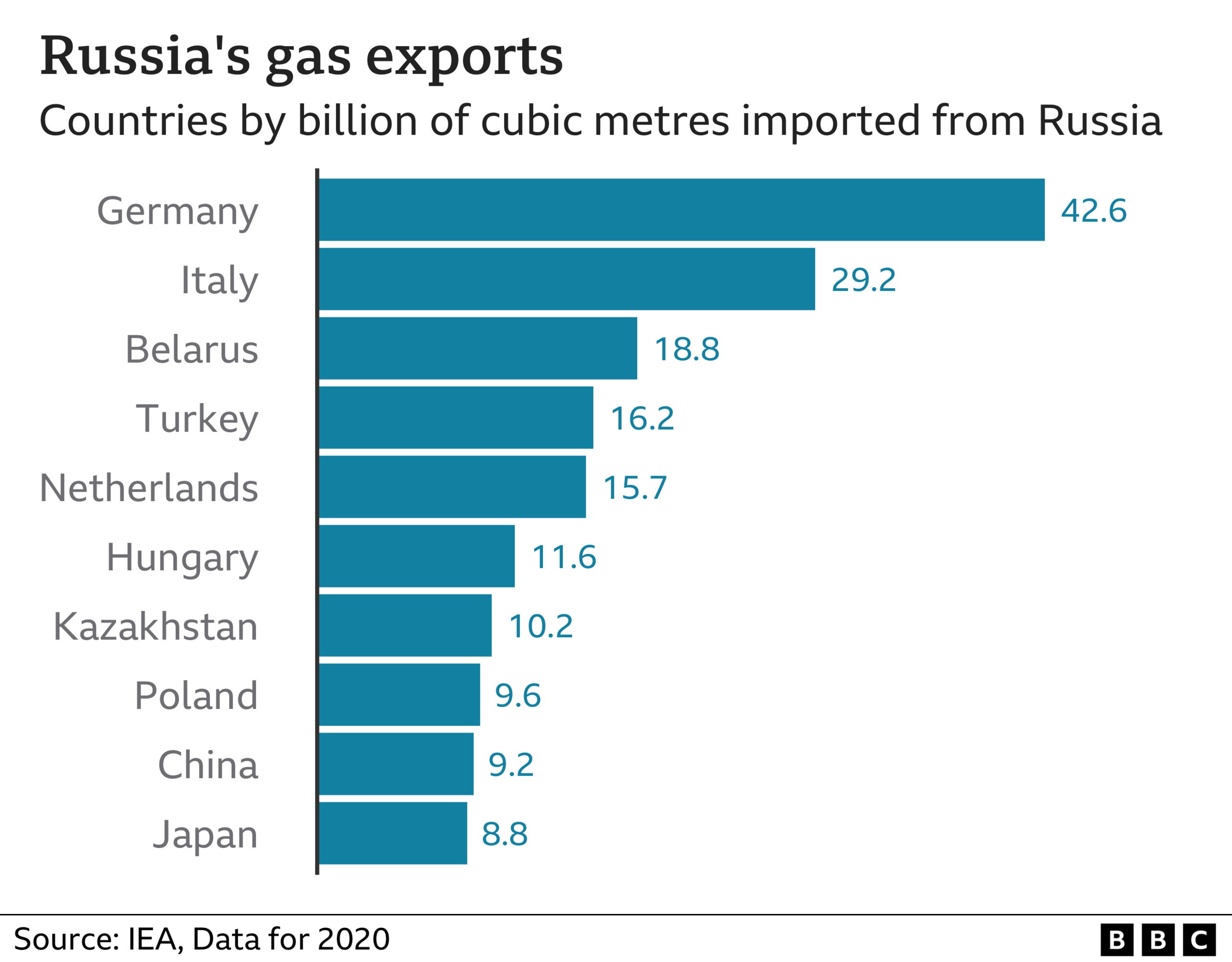

While the EU has been firm that it will not comply with Mr Putin's demands that payments be made in roubles, Hungary has reached a workaround deal with Gazprom.
Should Mr Putin decide to implement a full embargo, countries such as Germany and Italy would particularly hard hit, as you can see from the graphic above.
So are there any alternatives? Can European countries find supplies elsewhere?

Is the war spreading?
When Russian troops pulled out of northern Ukraine to concentrate on the east, it looked like the conflict was being scaled back, certainly geographically.
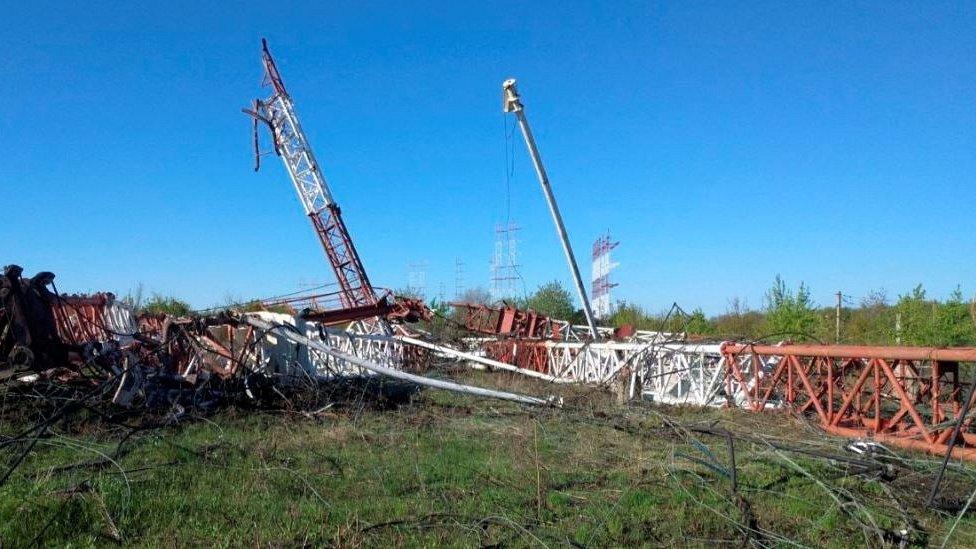
Wrecked radio masts in Grigoriopol, Transnistria
But mysterious explosions in Transnistria, a breakaway Russian-controlled territory in Moldova bordering on Ukraine to the south-west, have raised fears that a new theatre of war may be opening.
So what is happening in Moldova and how is it linked to the current conflict in Ukraine?

Nato may come closer to Russia
Regardless of the speed with which events on the ground are moving, one conclusion is clear for Western countries bordering Russia: they are not as safe as they thought they were and neutrality - the umbrella that had served them in good stead in the past, may no longer suffice.
Two in particular - Finland and Sweden - appear to have reached the conclusion that their best guarantee may be membership of the trans-Atlantic Nato alliance and its treaty article five - that an attack on a member is an attack on all.
The two Nordic neighbours are considering a joint application.
How will Russia react? Ros Atkins explains.
Watch: Ros Atkins on… Finland, Nato and Russia

Is Western unity against Russia's invasion impregnable?
Western values have been thrown into sharp focus by this conflict - so far.
But when it comes to the next phase of the conflict, how long will that unity last?
Our diplomatic correspondent, James Landale, analyses five issues that could ultimately divide the Western alliance.

Friends no more
A statue which once represented friendship between Ukraine and Russia has been brought down in Kyiv.
The huge statue in the centre of the Ukrainian capital was ordered to be removed by the city's Mayor, Vitali Klitschko, who said "Russia destroyed the normal life of millions of Ukrainians and destroyed the peace in Europe."
Crowds of people gathered to watch as the monument was dismantled, with some of them cheering the moment the job was completed.
WATCH: A statue that was a symbol of Russian and Ukrainian friendship is dismantled in Kyiv

War in Ukraine: More coverage
UKRAINE: Why India is buying more Russian oil
ODESA ATTACK: 'My world was destroyed by a Russian missile'
READ MORE: Full coverage of the crisis, external

- Published27 April 2022
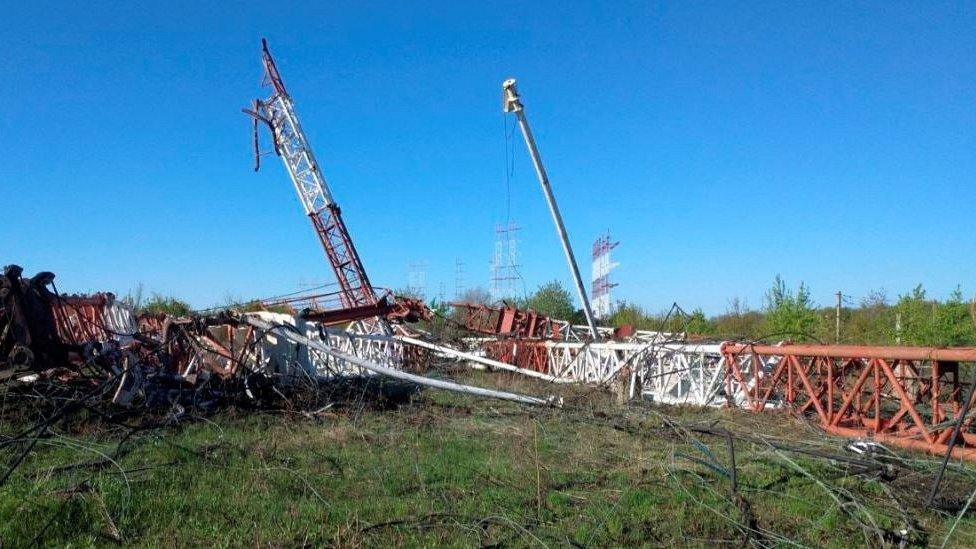
- Published27 April 2022
- Published26 April 2022
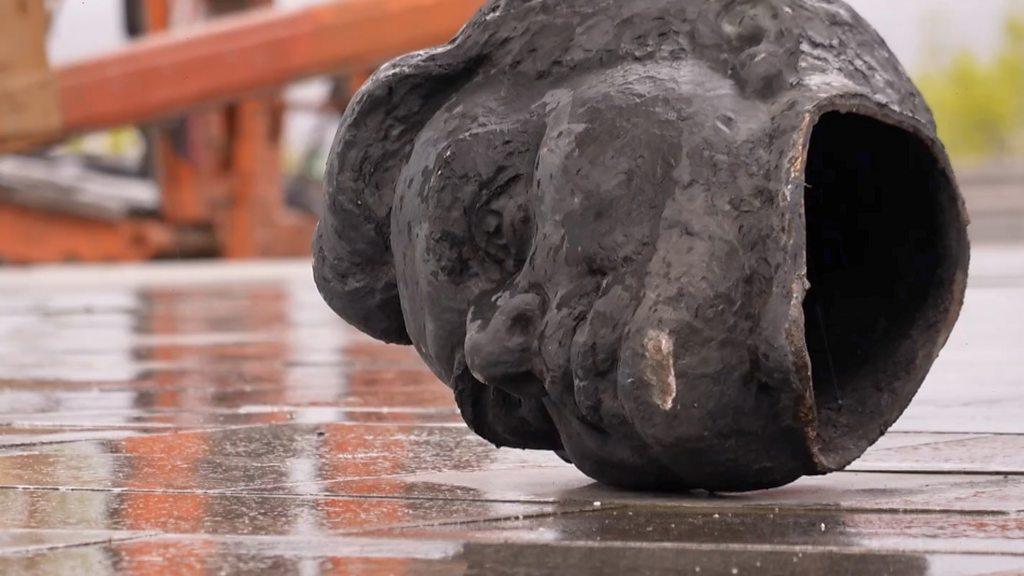
- Published26 April 2022
